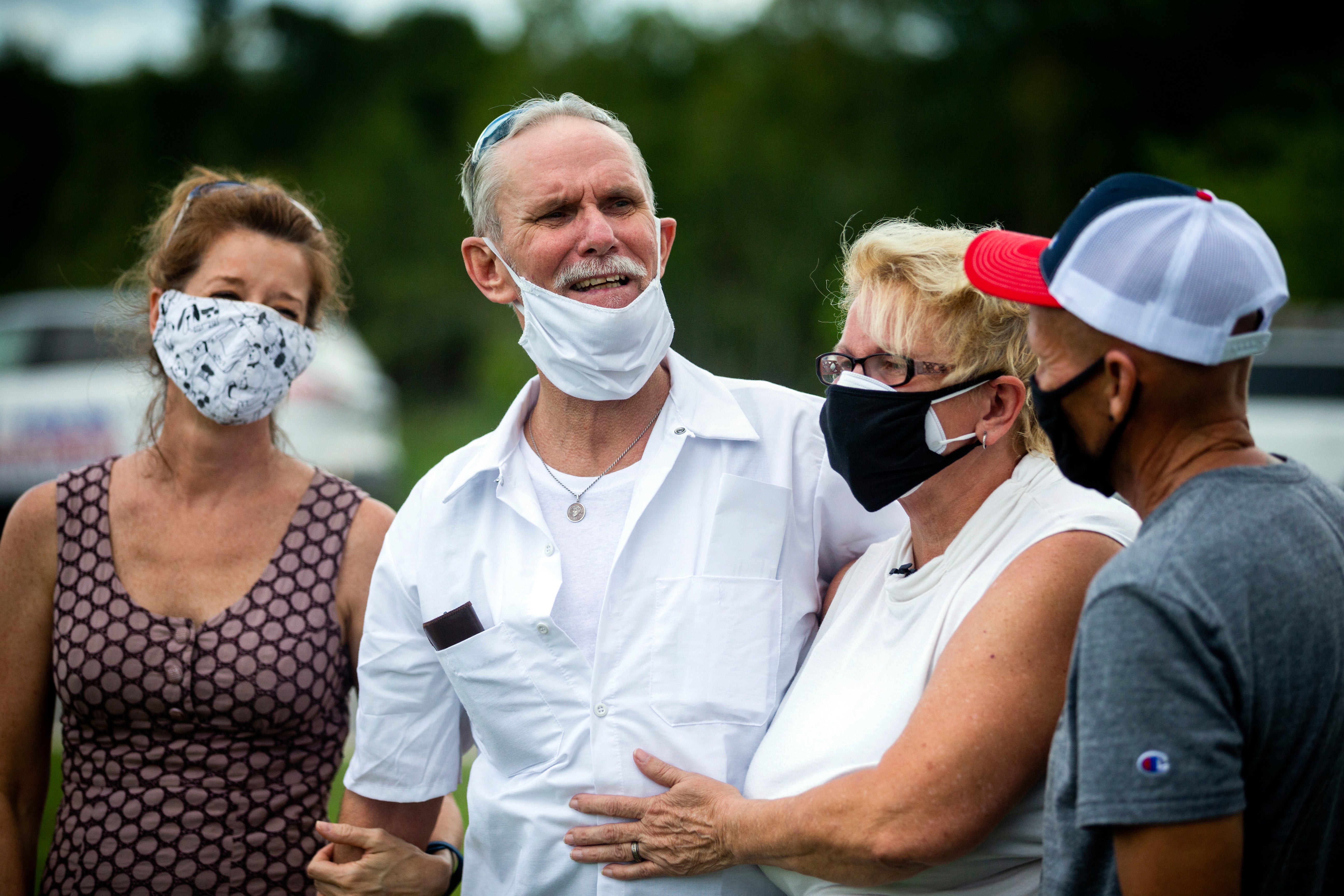Bill would streamline compensation for wrongful convictions
An effort is underway in the Georgia General Assembly to streamline and improve the process for people who've been wrongly convicted to claim compensation from the state

A grieving mother arrested for murder a day after her newborn's death. A man found guilty of rape after a codefendant falsely implicated him. And a man convicted of a double murder despite having an alibi and no physical evidence linking him to the crime.
Advocates for each told state lawmakers during a hearing Thursday at the Georgia Capitol that they were wrongfully convicted and should be compensated by the state. It was just one step in a process critics say is tough to navigate, overly subjective and lacks consistency.
But an effort is underway to streamline and improve the process by creating a specialized review panel for such claims and providing precise criteria for the consideration and awarding of compensation.
Currently, a lawmaker must sponsor a resolution for a person's claim for compensation for a wrongful conviction. That claim is presented to the state Claims Advisory Board, which is chaired by the secretary of state and includes the commissioners of the departments of human services, corrections and transportation. The board determines whether the state agency named in the claim — commonly the Department of Corrections — is culpable, not whether the conviction was improper.
The board then makes a recommendation to the General Assembly, where lawmakers decide whether the person deserves compensation and, if so, how much. The process involves multiple committee hearings and a full chamber vote in both the House and Senate to pass what is essentially a law individually tailored to the person seeking compensation.
Legislators have a lot of important issues to consider during each year's 40-day session, which means even really compelling compensation cases can fall through the cracks, said Hayden Davis with the Georgia Innocence Project, which is pushing for the review panel bill.
“It’s much more efficient to have a panel of experts who are really well equipped to understand the complexities of these cases, make solid judgments and take it off the legislature’s plate,” Davis said.
The pending legislation, HB 1354, would create a five-person panel: a judge who presides over felony criminal cases; a prosecutor; a criminal defense attorney; and two people with expertise in wrongful convictions, who can be a lawyer, forensic science expert or law professor.
The bipartisan bill provides precise criteria for eligibility for compensation, including proving innocence by a preponderance of the evidence, meaning it's more likely than not.
If the person is deemed eligible, the panel would determine a compensation amount between $50,000 and $100,000 for each year of wrongful imprisonment, as well as certain legal expenses.
The review panel's recommendation would be sent to the chief justice of the state Supreme Court, and the amount would come out of the judiciary's budget.
Georgia is one of 13 states that does not currently have a wrongful conviction compensation law, according to advocates. People who spend years behind bars because of wrongful convictions are cheated out of time with friends and family, as well as opportunities for professional training and advancement, said state Rep. Scott Holcomb, an Atlanta Democrat and sponsor of the pending bill. They also miss out on years of making and saving money and frequently suffer negative health effects, he said.
“All of these things need to be considered,” he said. “We can never truly compensate somebody for these horrific mistakes, but we have to do something.”
Ashley Jordan — known at the time by her married name, Ashley Debelbot — was 24 in 2008 when she gave birth to a baby girl, McKenzy. The baby died within days, and her parents were almost immediately charged with murder. They spent 12 years in prison before the Georgia Supreme Court overturned their convictions in 2020.
The pair’s lawyers presented complicated medical evidence they said showed the baby had a stroke in utero and suffered further injuries during birth. A new district attorney looked at the evidence and asked a judge to dismiss the case last year.
“At 24 years old, she lost what most would consider everything," state Rep. Carolyn Hugley said of Jordan during Thursday's hearing as she argued for compensation. "She lost her first and only child, she lost her freedom, and as a result of the 12 years of incarceration, the marriage did not survive.”
Albert Debelbot, the baby's father, has also filed a compensation claim but not in time to be considered by lawmakers this year.
One of three men who committed a brutal rape in 1993 implicated Kerry Robinson as one of the others involved. Robinson served more than 17 years of a 20 year sentence before DNA evidence retested with modern technology proved the DNA analysis presented at his trial was inaccurate.
“Mr. Robinson suffered. The system failed,” Holcomb told his fellow lawmakers Thursday.
Dennis Perry was convicted of murder nearly two decades after the 1985 killing of a couple inside a church. He had spent more than 20 years in prison when a judge dismissed the case against him after DNA evidence pointed to another suspect.
Philip Green, a lawyer for Perry, told lawmakers his client deserves compensation because misconduct by prosecutors and investigators resulted in “a terrible miscarriage of justice that absolutely wrecked a man's life.”
The House subcommittee approved compensation of $60,000 for each year of imprisonment in each of these three cases. But multiple committee hearings and votes remain before final approval.
Bookmark popover
Removed from bookmarks